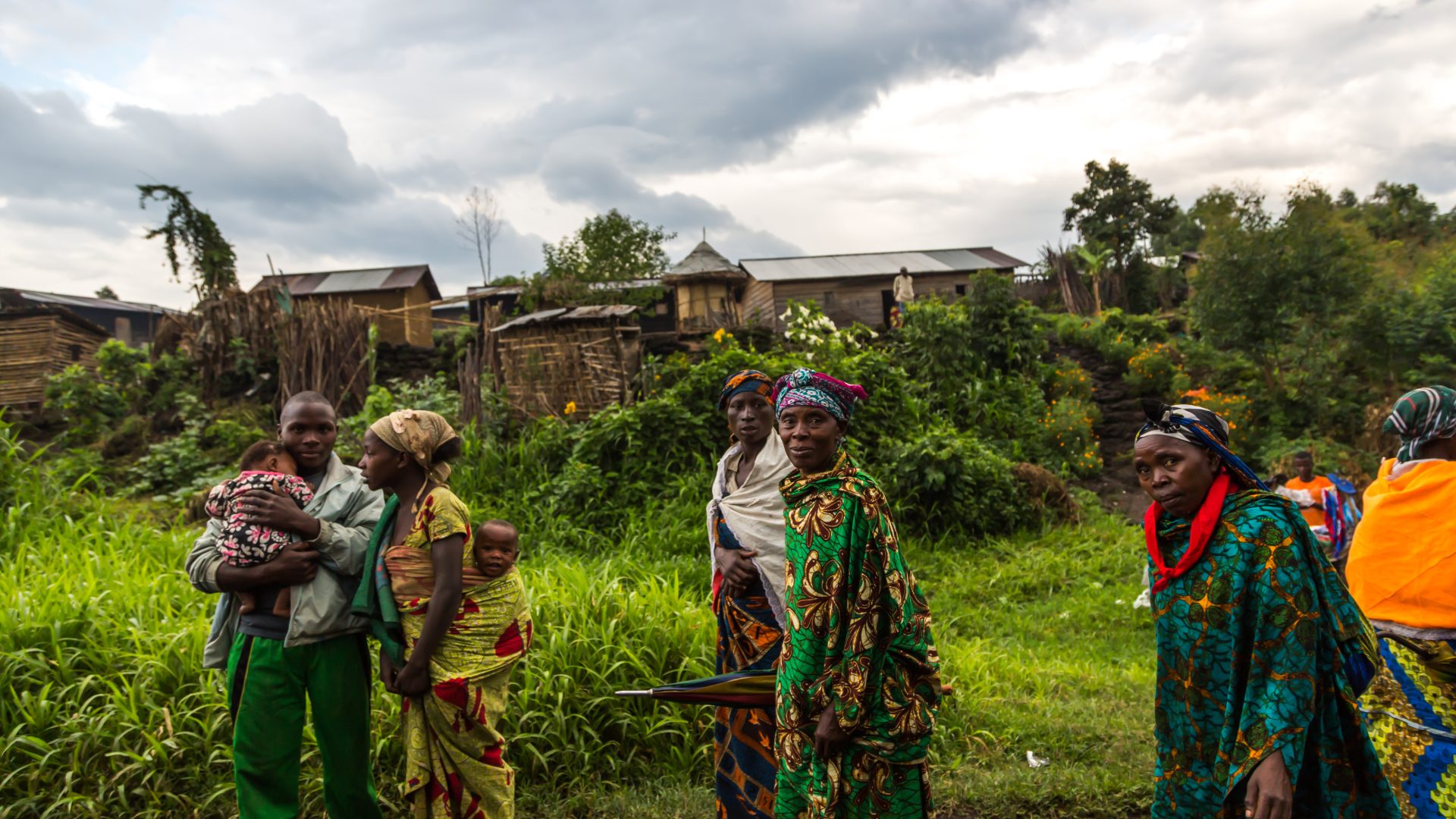Since January 2025, the Democratic Republic of the Congo (DRC) has been plunged into an ever-worsening humanitarian crisis. Conflict is escalating in North Kivu, triggered by the advance of the M23 armed group, and has already forced more than 3 million people from their homes. Yet, in the midst of this upheaval, one group is suffering in silence – older people.

Left behind in crisis: the plight of older people of the DRC
Published
Anatole Bandu, Country Representative for HelpAge DRCThe scale of this crisis is overwhelming, and older people are being left behind in the rush to respond.
A crisis within a crisis
Older people face hunger, illness, and violence with little to no support. “We must ensure they are not forgotten in this humanitarian response,” says Anatole.
Makeshift camps in churchyards, school grounds, and open spaces that opened in response to the conflict have started shutting down as the M23 advances and seizes control of key areas. Thousands are now being forced to leave these safe spaces and return to their homes, which remain insecure and conflict prone.
Health services are stretched beyond breaking point, with critical shortages of medicines, surgical supplies, and even fuel. Food is scarce, clean water is running out, and security threats are a constant danger. For older people, these challenges are even more dire.
The unseen victims
“Older people are among the most vulnerable in this crisis, yet they are too often invisible to the world. Many are left behind when their families flee, unable to move quickly or too frail to make the journey,” Anatole explains. “At least 6,780 older people are stranded in public spaces, in Goma and surrounding areas in North Kivu, where displacement camps have been shut down, and many are seeking refuge in overcrowded churches, hospitals and other temporary shelters, without transport, food or aid. Imagine the despair of being left alone in such conditions?”
Life on the margins
“We see older people being forcibly sent back to conflict zones by the M23 armed group and pressure from local authorities, with no support, exposed to danger and deprivation. In some cases, as resources to support displaced populations dwindle, local authorities have encouraged people to return home despite the ongoing insecurity. Older people are the hardest hit by food shortages, struggling to survive on insufficient humanitarian assistance. Cholera and Mpox outbreaks are looming due to appalling sanitation, while access to vital medicines is almost non-existent,” Anatole continues. “And as if that were not enough, armed groups in displacement sites are making the situation even more perilous, increasing the risk of violence and abuse, including gender-based violence.”
Anatole Bandu, Country Representative for HelpAge DRCOlder people are among the most vulnerable in this crisis, yet they are too often invisible to the world. Many are left behind when their families flee, unable to move quickly or too frail to make the journey.
HelpAge DRC on the ground
Despite the immense challenges, HelpAge DRC, a member of the HelpAge global network, is working tirelessly to support older people amidst the crisis:
- 350,000 (UNHCR data) displaced older people have been identified and registered.
- Emergency kits have been provided to vulnerable older households.
- Cash assistance was delivered to 147 older people with disabilities to help them reach safety.
- Advocacy efforts have intensified to ensure older people are not left behind in humanitarian response plans.
A call for urgent action
“Older people are being pushed to the margins of this crisis. They are among the most vulnerable, yet they receive the least support. Without urgent action, many will not survive,” warns Anatole. “We are calling on the international community to step up—this is a crisis that cannot be ignored.”
HelpAge DRC are urgently appealing for:
- Transport assistance for older people who cannot return home safely.
- Food and nutrition support to combat severe hunger and malnutrition.
- Medical supplies and healthcare access for those left without treatment.
- Protection services to ensure older people are included in aid efforts and safeguarded from harm.
Their stories must be heard
“We hear heartbreaking stories every day of older people left behind when the makeshift camps close. They are struggling without food, medicine, or even a place to sleep,” Anatole says. “The world cannot turn its back on them. We must act now to protect their dignity and ensure they are not forgotten.”
In the chaos of conflict and displacement, older people must not be overlooked. Their survival, dignity, and rights depend on urgent and inclusive humanitarian action. It is time to act.
Learn more about our humanitarian action
Discover how HelpAge is working to ensure older people’s inclusion in humanitarian responses.
